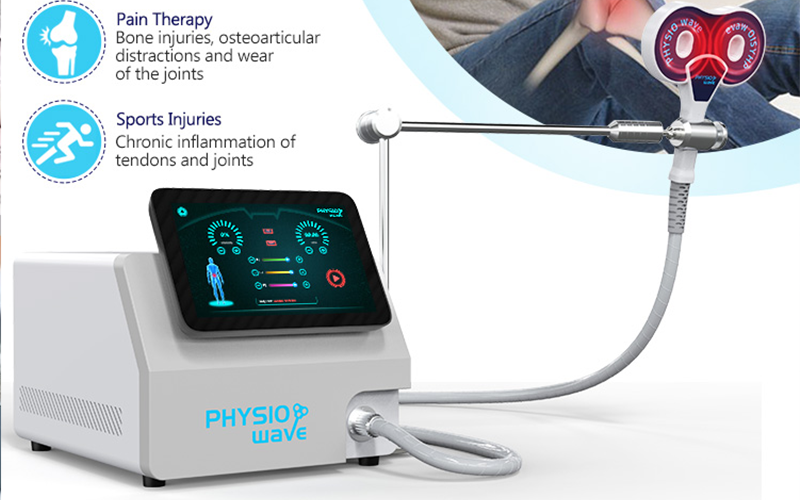Pain, swelling, and slow recovery from injuries or chronic conditions can significantly reduce a person’s quality of life. Whether it’s an athlete sidelined by a muscle tear, a patient struggling with joint degeneration, or someone dealing with persistent back pain, the frustration builds when conventional treatments don’t bring fast relief. This often leads people to search for alternatives beyond surgery or heavy medication. Magnetotherapy, also known as pulsed electromagnetic field therapy (PEMF), presents itself as a promising solution that offers non-invasive treatment with clinically proven benefits. But does it actually work?
The answer is yes—magnetotherapy has been shown to promote healing, reduce pain, decrease swelling, and enhance circulation by stimulating the body at a cellular level. By using pulsed electromagnetic fields, it activates tissue regeneration, improves mobility, and accelerates bone and muscle recovery. This makes it an increasingly popular choice in physiotherapy, sports medicine, rehabilitation clinics, and pain management centers.
If you are curious about how magnetotherapy works, what conditions it can treat, and whether it’s the right choice for your clinic or practice, keep reading. This article will give you a complete overview, supported by clinical insights, tables, and practical guidance for healthcare professionals and patients.
How Does Magnetotherapy Work?
Magnetotherapy operates on the principle of pulsed electromagnetic fields (PEMF therapy). These fields penetrate tissues deeply, stimulating nerves, muscles, and cellular activity without breaking the skin or causing discomfort.
When electromagnetic fields interact with tissues, they induce small electric currents within cells, enhancing oxygen supply, boosting circulation, reducing inflammation, and accelerating natural repair mechanisms.
Contents
- How Does Magnetotherapy Work?
- What Are the Main Benefits of Magnetotherapy?
- Conditions Treated by Magnetotherapy
- Is Magnetotherapy Safe?
- Contraindications You Should Know
- Session Duration and Frequency
- Frequently Asked Questions
- Conclusion: Why Choose Magnetotherapy?
What Are the Main Benefits of Magnetotherapy?
Magnetotherapy is not only about pain relief. Its physiological effects extend to tissue regeneration, bone healing, and accelerated recovery. Below is a breakdown of its key therapeutic benefits:
| Benefit | Effect |
|---|---|
| Pain relief | Reduces nerve sensitivity and inflammation |
| Muscle recovery | Enhances oxygenation and restores normal contraction |
| Bone healing | Stimulates osteoblast activity and accelerates fracture consolidation |
| Swelling reduction | Improves lymphatic drainage and circulation |
| Non-invasive therapy | No surgery, needles, or medication required |
| Improved mobility | Restores joint flexibility and range of motion |
| Rehabilitation support | Effective in both acute and chronic conditions |
These benefits explain why physiotherapists, orthopedic doctors, sports trainers, and rehabilitation specialists increasingly incorporate magnetotherapy devices into their treatment protocols.
Conditions Treated by Magnetotherapy
Magnetotherapy is versatile and effective for a wide range of musculoskeletal and inflammatory conditions.
| Condition | How Magnetotherapy Helps |
|---|---|
| Muscle tears and contractures | Promotes faster healing and reduces stiffness |
| Tendonitis and Achilles inflammation | Decreases swelling and pain in overused tendons |
| Ligament injuries | Accelerates tissue repair and prevents long-term instability |
| Carpal tunnel syndrome | Reduces nerve compression and restores mobility |
| Vertebral and joint pain | Improves circulation and reduces inflammation in spinal structures |
| Chronic edema and bruises | Enhances lymphatic drainage and reduces fluid retention |
| Bone fractures | Stimulates bone regeneration and speeds up healing |
Is Magnetotherapy Safe?
Yes. Unlike ionizing radiation such as X-rays, the electromagnetic fields used in magnetotherapy are safe and non-damaging. Patients remain clothed during treatment, and the procedure is painless.
Magnetotherapy devices are designed to comply with international safety standards, making them reliable for clinical use in physiotherapy, rehabilitation centers, and pain management clinics.
Contraindications You Should Know
While magnetotherapy is generally safe, it is not recommended for everyone. Healthcare providers must carefully evaluate patient history before prescribing treatment.
| Contraindication | Reason |
|---|---|
| Pregnancy | Safety not established for fetal development |
| Pacemakers and metal implants | May interfere with device function or cause heating |
| Epilepsy | Risk of triggering seizures |
| Malignant tumors | Risk of stimulating unwanted tissue growth |
| Severe arrhythmias | Potential interference with cardiac rhythm |
| Post-surgery (within 3 weeks) | May delay natural healing or cause complications |
Session Duration and Frequency
A typical magnetotherapy session is short, painless, and highly effective.
- Duration: 5–20 minutes per session
- Frequency: Usually twice per week
- Treatment course: 6–8 sessions, depending on the condition
Patients usually notice improvements within the first few sessions, particularly in terms of reduced pain and swelling.
Frequently Asked Questions
Q1: How does magnetotherapy work?
A pulsed magnetic field penetrates tissues, inducing small electric currents that stimulate cells, nerves, and muscles. This enhances circulation, reduces inflammation, and promotes cellular repair.
Q2: What conditions can it treat?
It helps with muscle contractures, tears, bruises, joint wear, tendonitis, carpal tunnel syndrome, vertebral pain, Achilles tendon inflammation, ligament injuries, and chronic edema.
Q3: Is it safe?
Yes. Unlike ionizing radiation (X-rays), electromagnetic fields used in magnetotherapy are safe and non-damaging.
Q4: Are there contraindications?
Yes. It is not suitable for pregnant women, people with pacemakers or metal implants, epilepsy patients, individuals with malignant tumors, severe arrhythmias, or those within 3 weeks post-surgery.
Q5: How long is a typical session?
A session lasts 5–20 minutes, usually twice per week for 6–8 sessions per treatment course.
Q6: Does it hurt?
No. The therapy is non-invasive and painless. Patients remain clothed, and the magnetic handle is positioned near the treatment area.
Why Choose Magnetotherapy?
Magnetotherapy, or PEMF therapy, represents a breakthrough in non-invasive rehabilitation, pain management, and recovery. By stimulating natural healing processes at the cellular level, it accelerates recovery from musculoskeletal injuries, improves bone healing, reduces swelling, and enhances overall mobility.
For physiotherapists, orthopedic specialists, sports medicine doctors, and rehabilitation clinics, investing in high-quality magnetotherapy devices can provide patients with safe, effective, and scientifically backed results.
👉 Ready to bring advanced healing technology to your practice?
Explore Our Magnetotherapy Devices Here



